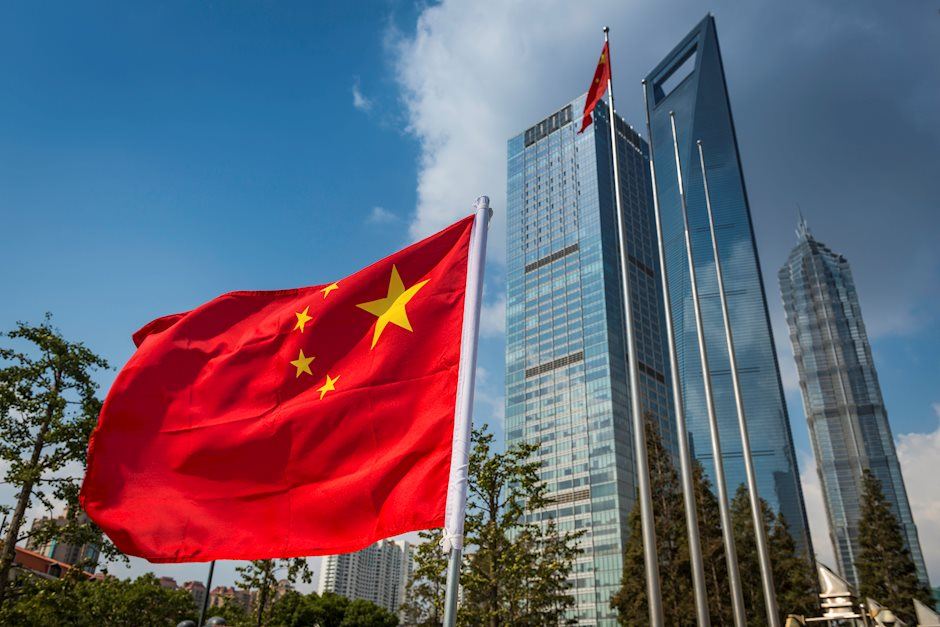China Nowhere Close to Becoming a Global Financial Center for Many Reasons


China lowered the official limit on US dollar withdrawals from $5,000 to $3,000. One woman could not get a mere $200.
Crackdown on Withdrawals
The South China Morning Post reports Chinese Banks Quietly Lower Daily Limit on Foreign-Currency Cash Withdrawals.
The issue was thrust into the spotlight on Friday when a viral video clip showed a bank cashier unable to answer a furious customer demanding to know why she was not allowed to withdraw US$200 from her dollar-denominated account, even though she was within her quota.
The client was so incensed by the refusal that she filmed the incident on her phone at the unidentified branch of China Merchants Bank (CMB).
She also asked why the bank insisted she could only withdraw her US dollar savings by converting into yuan, the Chinese currency. The cashier seemed caught off guard, unable to address the woman’s questions.
It later emerged the woman had been placed on a “watch list” of customers making frequent withdrawals.
Shanghai Not a Global Capital Market
In 2009, Shanghai officials pledged it would be on an equal footing to New York, London and Hong Kong by 2020.
It's 2019 and China isn't close.
US bankers say, Chinese capital controls mean Shanghai is not a global financial hub.
Restrictions on the movement of capital in and out of China have scuppered ambitions to become an international money market, with US bankers saying that it is still another five to 10 years from regaining its pre-Communist era status as the financial capital of the East.
China’s strict control of capital flows, heavy government intervention in financial markets, and the limited use of the yuan in international markets have restricted Shanghai’s role as a financial hub.
The presence of foreign money in China's stock market in Shanghai is also tiny – less than 0.5 per cent of publicly traded stocks in Shanghai were owned by foreign investors as of the end of March, according to data from the Shanghai Stock Exchange.
The government’s intervention in the stock market is seen as a key barrier to reaching the 2020 goal.
Not Ready for Prime Time
“Shanghai would immediately become a top-tier global financial centre were it to end capital controls and freely float the yuan, but Beijing has given no indication that such measures are even being contemplated,” said Brock Silvers, managing director at Kaiyuan Capital, a Shanghai-based private equity firm.
Gold-Backed Petro-Yuan Silliness
Every month or so, for years on end, I saw articles on how the yuan would displace the US dollar as the world's reserve currency.
I mocked every one of those articles and continue to do so.
For example, please consider my October 2017 article Gold-Backed Petro-Yuan Silliness: Reserve Currency Curse?
A massive amount of hype is spreading regarding China's alleged ambitions to dethrone the dollar. The story this time involves China's plan is to price oil in yuan using a gold-backed futures contract. Even if that were true, the impact would be zero. Nonetheless, CNBC is now in on the hype.
CNBC reports China has grand ambitions to dethrone the dollar. It may make a powerful move this year.
The powerful move was nowhere to be found then or now. Here are the reasons I posted in 2017.
Currency Requirements
If China wants to assume the role of having the world's reserve currency, something I highly doubt actually, it will need to have a free-floating currency and the world's largest bond market .
Political Requirements
China will need property rights protection and a global willingness of countries to hold the yuan in order for the yuan to be the world's reserve currency.
Balance of Trade Requirement
Finally, China would have to be willing to run trade deficits instead of seeking trade surpluses via subsidized exports.
Please read that last sentence over and over again until it sinks in.
Mathematically, whether they like it or not, China and Japan have massive US dollar reserves as a result of cumulated trade surpluses.
Reserve Currency Curse
Having the world's reserve currency is a curse because it necessitates a willingness to have endless trade deficits .
Mathematically, as long as China runs surpluses, foreign holding of yuan will not match foreign holding of dollars.
A mathematical corollary to having massive trade deficits year in and year is the need to have the world's largest bond market.
Adding gold into the yuan-futures mix does not alter the picture other than to add costs.
Case Closed
The idea that the yuan will soon replace the dollar as the world's reserve currency is absurd for currency reasons, political reasons, and economic reasons.
Anyone who suggests otherwise understands neither currencies nor global trade.
Finally, given the implications of the reserve currency curse, I highly doubt China even seeks what these petro-yuan analysts claim.
What's Changed?
Everything from "Currency Requirements" through "Case Closed" I wrote in 2017.
I commented on most of those aspects long before that.
The gold and petro-yuan ideas were new, so I immediately debunked them.
Nothing Has Changed
- China still does not float the yuan.
- China still does not have any global bond market to speak of, let alone the world's largest.
- China still does not respect property rights.
- China still has capital controls, an absolute no-no.
- China is still not willing to run trade deficits.
Wake me up when those five things are fixed.
Meanwhile, if anyone tells you the yuan is about ready to replace the dollar as the world's reserve currency, write them off as clueless.
We have been seeing such stories for a decade or longer, but China isn't remotely close in at least five areas, and perhaps never will be.
Author

Mike “Mish” Shedlock's
Sitka Pacific Capital Management,Llc

















